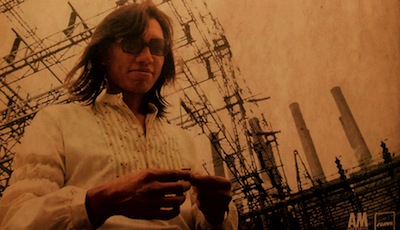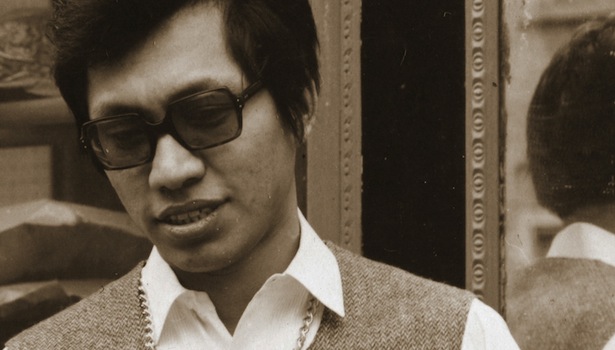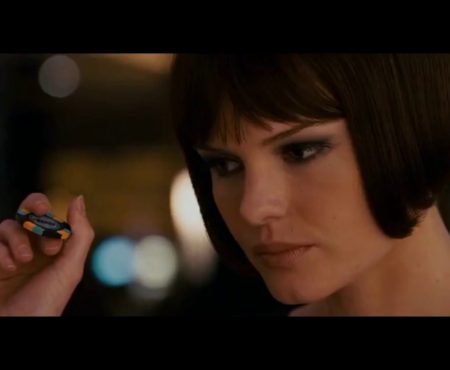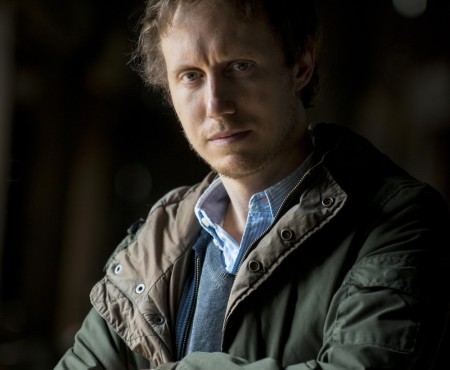We need to have a conversation about documentaries. The form has been around since the earliest days of cinema, but recent years have seen a golden age not only in the way documentaries have experimented in storytelling but in their widespread acceptance within the cinematic culture. Films ranging from The Fog of War to Inside Job to Man on Wire, and even to Exit Through the Gift Shop, have changed the perception of what documentaries are and what they can do. These days it’s quite common to see documentaries showing up on year-end Top 10 lists, including my own list from 2012, which featured Sarah Polley’s extraordinary Stories We Tell vying for top spot, as well as This is Not a Film further down the list.
In this time of documentary proliferation, though, it’s high time we examined our relationship with the form, as well as how documentarians often exploit that relationship.
The real question at the heart of this conversation is, how much responsibility does a documentary have in presenting the facts of its subject? At what point does altering events or omitting facts become a lie, and are these lies acceptable in documentaries?
It’s a conversation we see played out practically any time a big “based on a true story” fictional film comes out, but it’s not discussed as often with regard to documentaries. To even begin examining the issue we first need to define the form. What is a documentary?
As far as I’m concerned, what separates documentary from other forms of filmmaking is the recording of fact. Documentaries as a form intend to present us with recorded fact, often through filmed images or interview subjects. They are non-fictional films in the sense that even when they contain recreated scenes they are within the context of illustrating or complimenting factual information.
Even a film like Waltz With Bashir, which is almost fully animated, uses actual audio recordings of interviews, and then complements them with animation, both to recreate actual events, as well as to give the viewer an approximate understanding of the filmmaker’s mental process in trying to recall the 1982 War in Lebanon. Fictionalized elements are used to inform the factual information being documented and delivered.
The opposite of this would be a fiction film using documentary sources, like the recent Zero Dark Thirty. In that film there are several instances of news footage and other first-hand sources. The film begins with actual audio of phone calls made from the Twin Towers during the September 11th attacks. These sources could well be used to create a documentary, but Kathryn Bigelow uses them in the context of a fictionalized representation of historical events. They are meant to bolster our understanding of how closely the film hews to reality, but never to suggest that the rest of the film is a 100% literal account of documented facts.

But what if a film outright omits or distorts facts? Sometimes it’s necessary. No documentary can be completely comprehensive. Some facts will inevitably left out. There are lines, though. The documentary that got me thinking about this subject again was the current Oscar nominee, Searching for Sugar Man. It’s the heartwarming story of a musician, Rodriguez, who fell into utter obscurity in the US, but because incredibly popular in South Africa, completely unbeknownst to him. What the film leaves out, as reported by Rope of Silicon, is that Rodriguez wasn’t totally obscure. His lack of success in the US is over-emphasized by the documentary, and he actually did find some success in countries like England and Australia. In fact, well before discovering his fame in South Africa, Rodriguez toured in Australia, even releasing a live album there.
These omitted facts aren’t huge, and they don’t fundamentally change the story of Rodriguez’ relationship with South Africa, but they do paint a slightly different picture than the one the documentary presents. The fact is, Rodriguez was not as obscure as the film claims, nor was he as difficult to find as the documentary implies. It’s not an outright lie, but it is a lie by omission, and the information was clearly left out in order to juice the drama in Rodriguez’ story. It’s still an incredible story, just not as incredible as the filmmakers would have you believe going on their account alone.
Searching for Sugar Man’s infraction is relatively small, though. Some documentaries, including the much-loved King of Kong, feature so much omission and distortion that their entire story could be called a lie. King of Kong makes for a nice bit of film, but it’s essentially fictionalized just as much as a film like The Social Network, only it’s fictionalized in the guise of the documentary form. I have a serious problem with this.
When it comes to The Social Network, there is a serious discussion to be had about how much responsibility Sorkin and Fincher had, not because they were making a factual film, but because their film, no matter how clearly fictionalized, will no doubt come to inform society’s impression of the events and real-life characters depicted. King of Kong has the same responsibility, but there is an additional burden: implicit audience agreement.
Anytime we walk into a film we are making an implicit agreement. If I go see a fictional film I expect that it will be a fiction. I suspend my disbelief and allow the story to do what it wants. When I walk into a documentary, that agreement is different. There is an implicit expectation that no matter how much slant or bias or editorial influence is being had on the subject, at the very least the film is presenting factual information as accurately as possible. Sometimes accuracy is difficult to achieve, but distorting facts is a no-no.

If you’re making a documentary and the only way you can get the story to work as you intend is to omit and distort facts, then you are now making a fictionalized film disguised as a documentary. Now, maybe there’s nothing necessarily wrong with this, but by making it look like a documentary you are exploiting that implicit agreement from the audience. Audiences will go into the film giving the benefit of the doubt to the filmmaker on the issue of factuality, meanwhile their trust is being exploited to distort their perceptions of the story and create a genuinely false understanding of its content.
To me, this is flat-out wrong. Are there shades of grey? Maybe, but the way I see it, documentarians need to be very conscious of maintaining their end of that agreement. The audience trusts you to deliver facts; you’d better stick to the facts. Frankly, I’m getting tired of falling for documentaries, only to discover that the story they told me was even in part a fiction. What is the point of watching documentaries if they aren’t going to be upfront and honest?
Then again, maybe I’m being too hardline about all this. How do you feel about truth and fact in documentaries? Are you okay with omission or distortion of important details? Let me know in the comments, as I think it’s an important conversation to have.





















4 thoughts on “Honesty in Documentary”
Unless dealing with numbers or something easily quantifiable, all facts are subjective. All filmmakers, documentarians or otherwise, approach their subject with a story to tell. In order to bring out the essence of the storyline, some sides are likely to be omitted or diminished in order to focus on what interests the filmmaker. As long as you’re aware that there’s really no such thing as as “unbiased documentary” or “a documentary that deals with nothing but fact,” you won’t be bothered by discrepancies regarding the subject matter’s presentation.
My favorite documentaries have all been dismissed by someone or another as “embellishing the truth” or “omitting important information.” There will always be someone crying about how a documentary didn’t present its subject matter fairly. As if there’s such a thing as an unbiased documentary or an unbiased filmmaker in general. Human beings are biased. Thus, the issue at hand couldn’t bother me less.
I think the “genre” of documentary has expanded and morphed so much the last decade or so that in many cases it doesn’t even really represent “non-fiction”. So in many cases, you can’t blame a film for not being completely factual or being a real documentary if they didn’t necessarily intend it that way in the first place – but then you get your film tossed in the documentary genre for lack of a better place…That’s not to say Searching For Sugarman gets a free pass – I haven’t yet seen it and from what you and Ryan have described, it cuts a few too many corners – but I know that Tchoupitoulas got some criticism for trying to pass off the adventure as happening in one single evening. But that was the perception those people had – the movie didn’t try to cover anything up, it was trying to convey a feeling and not necessarily a straight line narrative. That’s what the filmmakers wanted, but they get thrown into the documentary pile so that sets the audiences expectations.
And to be clear, I absolutely adore Tchoupitoulas. Amazing film.
But I do agree with the general tone of your post. If you are clearly making a “documentary”, you can play with things to reach a larger truth (shall we say an “ecstatic” one? Herzog was way ahead of us all…), but if it starts impacting 1) the way people view the events and 2) even just the feeling you get from the story, then you’ve got some problems. Speaking of Herzog, how do you see his documentary films? I love ’em as a general rule, but typically don’t believe all the tiny details (e.g. I still don’t actually believe that Herzog actually had that audio tape in Grizzly Man – but doesn’t it give you a true feeling of the dread of that situation?).
I also like what Russell said in the first comment – we all bring our own biases in to the movie to start with. So you’ll never get the exact same feeling from the audience coming out…
Not to be all “when I was in film school” but in truth, when I was taking classes as a film major, it was taught explicitly and implicitly that even documentaries have agendas and that we should always keep that in mind when reviewing them from both a critical and historical authenticity standpoint.
Pingback: Everybody’s Talkin’ 1 – 25 (Chatter from Other Bloggers) | The Matinee | Cinematic Passion & Perspective